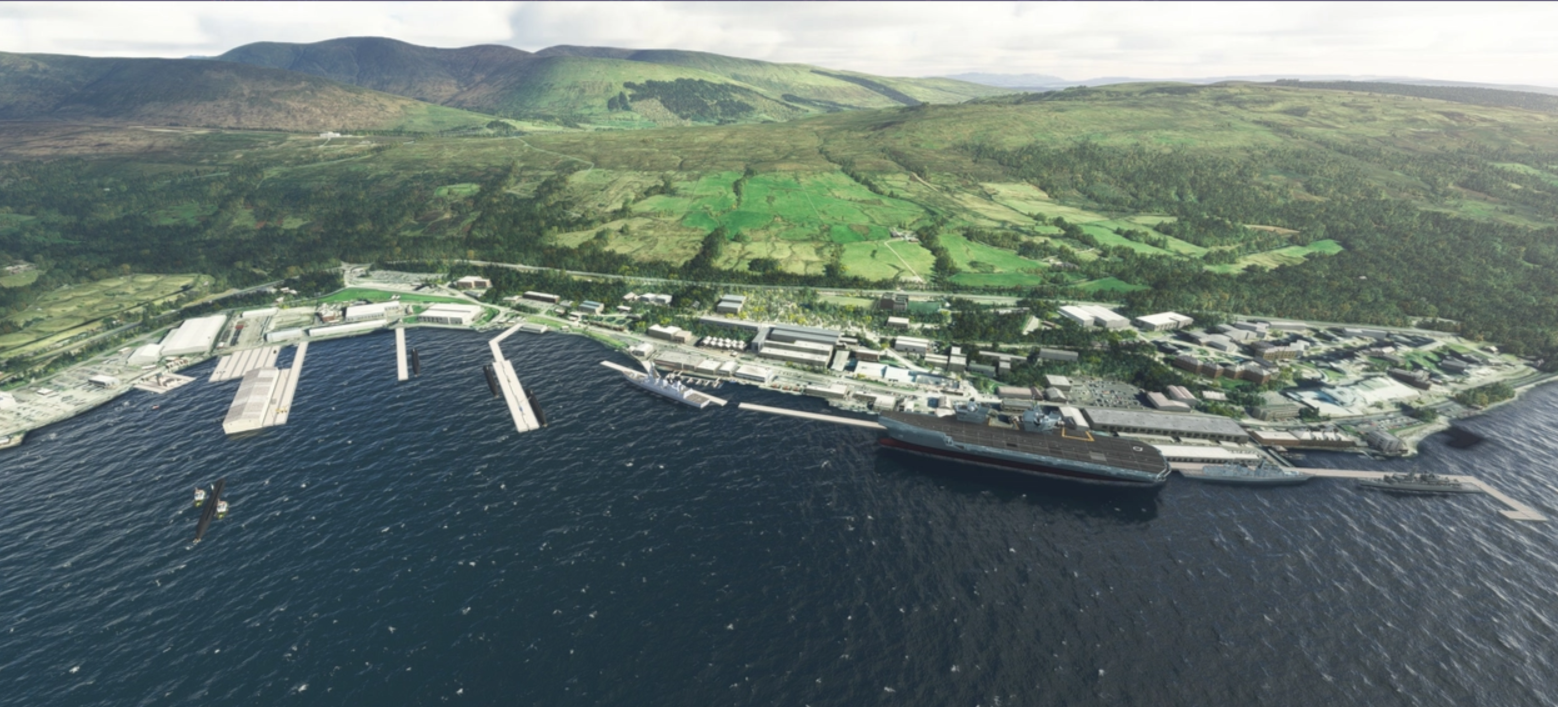
by New Worker correspondent
The Ministry of Defence (MoD) has been covering up the leak of radioactive water into the sea from a nuclear warhead storage facility in Scotland due to old pipes bursting. The base where Britain’s nuclear bombs are stored has allowed contaminated water to leak into the sea after old pipes repeatedly burst. Radioactive substances leaked into Loch Long, a sea bay near Glasgow in western Scotland, because the navy failed to properly maintain a network of water pipes at the base. The military base in question is near the village of Coulport. It stores nuclear warheads intended for four Trident submarines that are based nearby.
Files compiled by the Scottish Environment Protection Agency (SEPA) and released after a protracted battle between journalists and the Ministry of Defence have revealed that Britain’s nuclear warhead base is crumbling and toxic waste has been leaking into the sea.
Investigations by the Ferret, an independent news outlet, and the Guardian found that the
Royal Navy is failing to properly maintain a network of 1,500 water pipes at its base in Coulport,
where Britain’s nuclear warheads are stored. Frequently burst pipes mean radioactive water has been leaking into the surrounding environment, including Loch Long, an area popular for fishing and aquatic sports.
Citing SEPA documents, the reports said that the military base’s pipes had repeatedly burst: once in 2010, twice in 2019 and twice more in 2021. According to the regulator, at the time of the ruptures, about half of all the storage equipment had expired. As noted, water contaminated with radioactive tritium, a substance used in warheads, was leaking from the pipes.
Responding to a written question earlier this year by SNP MP Dave Doogan, Maria Eagle, the
Minister for Defence Procurement and Industry, confirmed dozens of incidents at Faslane and nearby Coulport – the storage and loading facility for the Trident programme.
SEPA and the MoD have tried to hide information about the leaks for many years claiming
that it was a matter of national security. But recently, Scottish Information Commissioner David Hamilton ordered this data to be made public, after which it was obtained by the Ferret and
the Guardian.
SEPA said that a major flood into the loch was caused by “shortfalls in maintenance” that
resulted in “unnecessary radioactive waste”. Another report from 2022 said that the Navy’s plan to fix the pipes was “sub-optimal”.
The watchdog also expressed concern at Faslane, where Britain’s nuclear submarine fleet is
based, saying in 2020 that half of the components at the base were “beyond design life”.
The MoD spent six years battling against the release of documents, which shine a light
on radioactive leaks that occurred at Coulport as far back as 2010. In May this year, the Ferret reported that at least 12 radioactive incidents could have occurred at Faslane since 2023, which the MoD said had “actual or high potential for radioactive release to the environment”.
While SEPA publishes data on toxic discharges from Coulport and Faslane annually, it insisted that these are “of no regulatory concern”. the regulator does not however define what it means
by “no regulatory concern” and both bases are exempt from most regulations.
CND General Secretary Sophie Bolt said: “Once again, Britain’s nuclear weapons are shown to be a danger to the health of local communities. And once again, the MoD is found out to be trying to shamefully cover it up. Rather than keeping people safe, Britain’s nuclear weapons are exposing the public living or spending time near these bases to toxic radioactive water without their knowledge. Billions of pounds have been spent on improving the bases at Faslane and Coulport in recent years, but it appears that vital safety works have not been undertaken or [have been] mismanaged. We’re being conned. The public should not have to face cuts to public services in order to pay for a nuclear weapons system that risks us all.”





